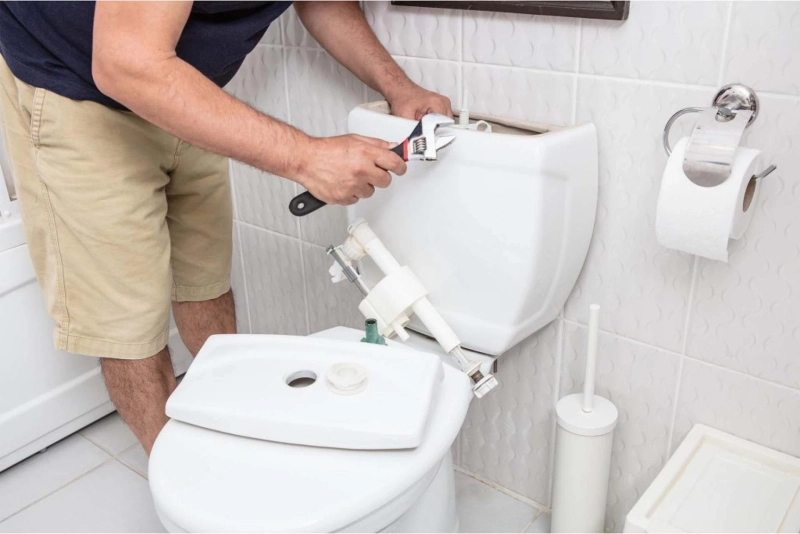Nothing costs higher than extreme emergency drain cleaning, not to mention the potential adverse repercussions on health that can result from exposure to raw sewage backing up into your home. Like most things, a bit of prevention can majorly help you avoid hours of frustration and save you some hefty bucks in the long run.
How to avoid these drain blockages in your Boston home
Do not dump hygiene products in the drain
Hygiene products tend to get hung up on the scabrous edges of joints in the drain pipes or the small tree roots that may have penetrated the main sewer line over the years. So it is best to refrain from flushing them down the toilet or your drain. Dump them directly in the garbage to get rid of them, rather than throwing them down the drain.
Refrain from putting grease down the drain
Oil and grease are extremely clingy by nature; they tend to stick to the surfaces they are poured on. It would stick even on the inside of your drain lines, which ends up forming a sticky coating. This sticky coating catches other particles as they pass through the sewer line in your home and clogs the drain eventually. Hence, avoiding pouring grease or oils down the drain would help keep it cleaner. Alternatively, after it has cooled, pour it into a dried-out tin can or a waste glass jar and dispose of the can and jar in the garbage.
Install only the best type of pipes
If your home was built between 1930 and 1980, then there are chances that those are galvanized steel pipes, and such pipes rust quite easily. Rusty pipes are a big no-no for long-term use. Opt for copper pipes; they have proven to be more reliable because of their leak-resistant and non-polluting properties, and on top of that, they are recyclable. Still, for homes, polyvinyl chloride (PVC), cross-linked polyethylene (PEX), or chlorinated polyvinyl chloride (CPVC) pipes are preferred over any other type.
Keep periodic cleaning of drains and pipes going
It is imperative to treat and clean your drains regularly; make use of an enzymatic cleaner a few times a year, at least once a month. The enzymatic cleaners you find outside are biodegradable cleaning agents that consist of bacterial enzymes that break down the organic debris that’s stuck inside your pipes. This process can help keep your drains clean by cleaning them on a regular basis. Many chemical cleaners are corrosive, which means they can't be used on plumbing pipes or even septic pipes. Enzymatic cleaners, on the other hand, are not corrosive and can be used safely.
However, it is not always necessary to rely on chemical cleaners; if you do not prefer enzymatic cleaners, you can even run some hot water down your pipes now and then, which will melt down the grease that might be sitting around the edges of your drain pipe, boil some water, and flush your pipes out. This doesn’t solve the problem of a clogged drain, but it can definitely help maintain clog-free drains. You must also routinely take out the plug in your bathtub or shower drain to pull out hair that has gathered on the drain’s cross members.
The good side of regular cleaning is that it saves you from emergency drain cleaning.
Avoid the frozen pipes
As winters arrive, they come with a risk of frozen pipes. The problem with frozen pipes is that they run the risk of quickly bursting which leaves behind a lot of water damage to deal with. Frozen pipes would immediately mean a plumbing emergency but this can even be avoided very easily just with a few tips in mind. You can disconnect outdoor water hoses outside and wrap any exposed pipes in the house with heater tapes to keep the drain pipes warm during winter. We would recommend you work to thaw your frozen pipes as quickly as possible and no one can get the job done as efficiently as a professional. Call your nearest drain mechanics or plumbers to resolve the issue.
Check your drains
Having your drains scoped would mean, putting a special sewer camera through the pipelines of your house and inspecting the pipes. What you want to look for in your defective pipes are holes, separations, root infiltration, offsets, and collapsed sections. Performing these inspections on an annual basis helps ensure you have some time to deal with the arising issues before they turn into an emergency drain cleaning.
Bottom Line
Call your trustworthy drain cleaning services in Boston as soon as you notice any problem with the drain. One way that you can avoid huge plumbing blunders at your home is by considering how would you deal with it while it's just initiating. Notice, the drain gurgling, and toilets bubbling? take those as a sign of problems that should be dealt with sooner without keeping them for later.
0


